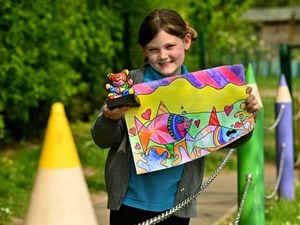Teach children at home, but keep making memories too
Randall and Mary Hardy have lived in North Shropshire since 2007 and decided to home educate their three youngest children, who are now all adults.

One works in the NHS, one is a sales engineering specialist, while the youngest is a research scientist working on a PhD. Here they talk about their experiences of home education.
‘Educating your children at home – a chore or an opportunity?’
Everything we read at present reminds us that we’re living in very unusual times – and our children are too.
Like us, they will take time to adjust, both emotionally and practically, to a sudden and almost total paradigm shift. Let’s cut our families some slack to do this. There is no need to feel guilty.
One essential insight which parents abruptly thrust into enforced home schooling might be glad to hear from elective home educators is that learning at home is first and foremost relational.
With that in mind, don’t try to replicate one-size-fits-all school-based education, then beat yourself up because it’s not working. Carpe diem – seize the moment!
Family-based education involves living and learning alongside your children, communicating with one another, fielding life’s problems and enjoying its opportunities as you walk through it together.
When life becomes your learning environment and relationships your orientation, you can afford to be more flexible.
Of course, you will not want to neglect the acquisition of basic learning skills, because these are what will equip your children to find out and learn for themselves. But you can happily strike while the iron is hot, and make spontaneous departures into whatever is happening or grabbing their interest at the time. Make the most of such opportunities. You’ll be surprised where they lead.
Adjustments
For example, news reports on the spread of Covid-19 may stimulate curiosity about where various countries or regions are. A breakfast table conversation may lead on to ‘field to packet – the story of my breakfast cereal’. Don’t worry if you don’t know the answer to something they ask you. Set out on a journey to find out together.
These weeks spent together will doubtless make a big impression upon your children, so do all you can to make memories about positive learning together and the establishment of deeper, more meaningful family relationships.
The most important encouragement we can offer to parents is ‘you can do it’. In fact, you are uniquely positioned to do it because you, of all people, are the one with the wellbeing of your child at heart.
There will be things you don’t know or can’t remember – but such things are not insurmountable. We live in an age where information is readily sourced. If fears or feelings of frustration surface, allow time to discuss them in ways appropriate to your child’s maturity and ability to articulate their emotions. Life is not normal right now. Resources normally enjoyed by regular home educating parents such as museums and sports activities are off limits. We are all having to make adjustments.
It’s quite normal to have bad days or feel overwhelmed, in the best of home educating circumstances. No elective home educator has ever been perfectly satisfied with their first attempt.
All have reworked their plan after learning how not to do things. It helps to stand back from the coal face a bit and try to think objectively. If you feel you’re no longer on top of household tasks, why not recruit some young helpers? Tackling domestic chores and gardening as a family helps to build a team mentality.
Such activities are part of a rounded education. Think of the many young people who discover on reaching university that they haven’t the faintest clue how to keep their flat clean or stay within budget when shopping for food. Education is about far more than passing exams, it’s about equipping our children to live well as adults.”





